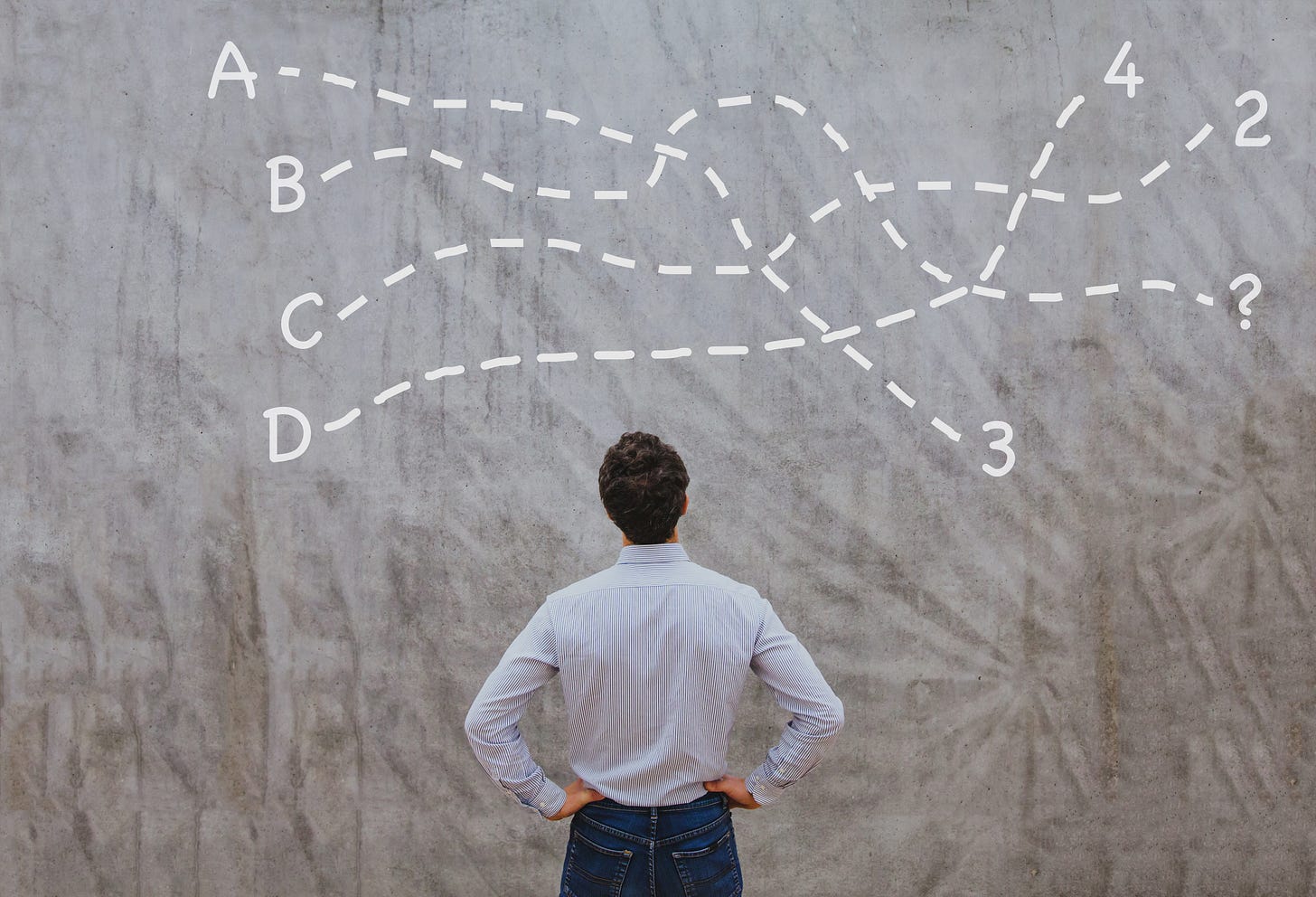Would You Take This Course LOGIC, REASON AND KNOWLEDGE in FALL 2024 with Dr. Lyons-Weiler?
Please give this 3-question poll a minute of your time... I'm developing yet another world-class course for IPAK-EDU participants. This one will empower you like few others.
See the course description, below…
YES, I WOULD TAKE THIS CLASS (SIGN UP FOR THE ANNOUNCEMENT), BECAUSE I WANT TO ARM MYSELF FOR THE FUTURE ATTEMPTS TO TAKE CONTROL OF MY LIFE…
DO YOU WANT TO REGISTER EARLY AND SAVE 50% TODAY?
NO, BUT I WANT TO BROWSE OTHER COURSES BECAUSE I DID NOT GET EVERYTHING I WANTED FOR THE HOLIDAYS AND I WANT TO EMPOWER MYSELF THROUGH KNOWLEDGE…
ANALYTICS 300 (Fall 2024)
Logic, Reason and Knowledge
Time: MONDAY 3PM
Instructor: James Lyons-Weiler, PhD
Place: ONLINE ZOOM
CAUSALITY Coffee Hour: Fridays 10AM ET
Course Goals
To review how different cultures and schools of thought view logic, reason and causality.
To investigate ways of knowing used and abused in various domains in which conclusions are a currency.
To help you empower yourself to know and view valid inferences about reality and draw your own conclusions.
Course Description
Logic is the study of inference. It offers ways of analyzing the structure of inferences and has evolved over eons. The specific linguistic and mathematical tools for representing arguments in symbolic form have evolved over time. In the end, causality is often at stake, and the ability to carry the day often involves misleading and misdirection. Students will master methods that demarcate valid and invalid reasoning. In this course we will study formal and symbolic logic to discover how to identify a valid argument, classify and understand valid inferences such as analogy, invalidation, proof by contradiction, truth tables, and many other tools of the trade. We will examine evidences of causality and their relative strengths and weaknesses. Students will understand and be able to identify logical fallacies. In the final weeks, we will examine causal network theory and visit a theory of causal or liability attenuation and visit assessment of causality in complex, nonlinear dynamic systems.
Texts and Readings
Patrick Hurley, A Concise Introduction to Logic
Stanislaw
The logic of causal propositions (researchgate.net)
The Logic of Causal Propositions on JSTOR
Self-Assessment
PROJECTS (50%)
IN-CLASS PARTICIPATION (25%)
Comprehensive final exam (25%)
COURSE OVERVIEW. A HISTORY OF LOGIC AND REASON.
INTRODUCTION TO FORMAL LOGIC1
INTRODUCTION TO FORMAL LOGIC2
INTERMEDIATE LOGIC 1
INTERMEDIATE LOGIC 2
ADVANCED LOGIC 2
ADVANCED LOGIC 2
ARGUMENT
ARGUMENT BY ANALOGY
INVALIDATION
PROOF BY CONTRADICTION
CREATING AND USING TRUTH TABLES
DIRECT VS. INDIRECT CAUSALITY
MULTIFACTORIAL CAUSALITY
EVIDENCES OF CAUSAL IMPLICATION
CAUSAL NETWORKS1
CAUSAL NETWORKS2
CAUSAL ATTENUATION THEORY
CAUSALITY IN CHAOS - NONLINEAR COMPLEX SYSTEMS
REVIEW OF LOGICAL FALLACIES AND HOW TO SPOT THEM




Maybe
This course looks really complex. It would depend on cost and when it’s being held.